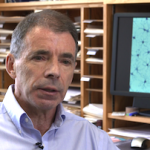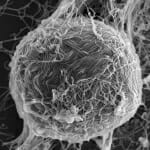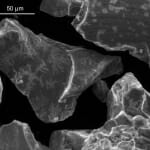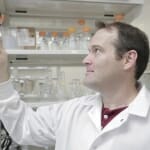Tag Research
Inflammation predicts response to anti-depression medication
Children and teens with bipolar depression responded better to the drug if they had increased markers of inflammation in their blood, a new UW–Madison study shows.
Mindfulness video game changes areas of the brain associated with attention
The game was designed for middle schoolers and requires them to count their breaths by tapping a touch screen to advance through relaxing landscapes such as ancient Greek ruins and outer space.
Mimicking enzymes, chemists produce large, useful carbon rings
The work may represent preliminary progress toward deciphering just how enzymes, honed by evolution, so efficiently produce natural compounds.
Hard as a rock? Maybe not, say bacteria that help form soil
New UW–Madison research shows how bacteria can degrade solid bedrock, jump-starting a long process of alteration that creates the mineral portion of soil.
Low genetic risk for ADHD may protect against negative life experiences
Adults with lower genetic risk for ADHD also reported, on average, higher IQs and educational attainments, shorter or no criminal records, lower body mass index (BMI), and lower rates of depression than adults with middle-to-high genetic risk for ADHD.
Clinical trial for Ebola vaccine developed at UW–Madison underway in Japan
Fifteen healthy young men will receive two doses of the experimental vaccine. If the first group tolerates it, an additional group of up to 20 volunteers will receive a higher dose of the vaccine.
New tool predicts three-dimensional organization of human chromosomes
The predictive tool is a boon for researchers studying how cells control the activity of genes, helping explain how cells achieve their key functions and how they go haywire, as happens in diseases such as cancer.
Delirium linked to brain injury after severe surgery
The researchers were able to demonstrate that delirium is associated with injury to nervous tissue in the brain that could lead to loss of cognitive ability.
Professor will make ‘workhorse’ microscope more powerful
Kevin Eliceiri says he has always believed that science is best done by building on the work of others and openly sharing what you have done.
Study says “hidden overharvest” from fishing plays a role in Wisconsin walleye declines
New research finds that It finds that 40 percent of walleye populations are overharvested, which is ten times higher than the estimates fisheries managers currently use.
Professor’s study of ancient crystals sheds light on earth’s early years
“If we can analyze melt inclusions, that will provide the first data on rock chemistry for the Earth’s ‘Dark Ages,’ the first 500 million years of earth history,” John Valley says. “This is a critical time that we know almost nothing about.”
Can ‘smart toilets’ be the next health data wellspring?
Wearable, smart technologies are transforming the ability to monitor and improve health, but a decidedly low-tech commodity — the humble toilet — may have potential to outperform them all.
Lifelike chemistry created in lab search for ways to study origin of life
The work is far from jumpstarting life in the lab. Yet, it shows that simple laboratory techniques can spur the kinds of reactions that are likely necessary to explain how life got started on Earth some four billion years ago.




















